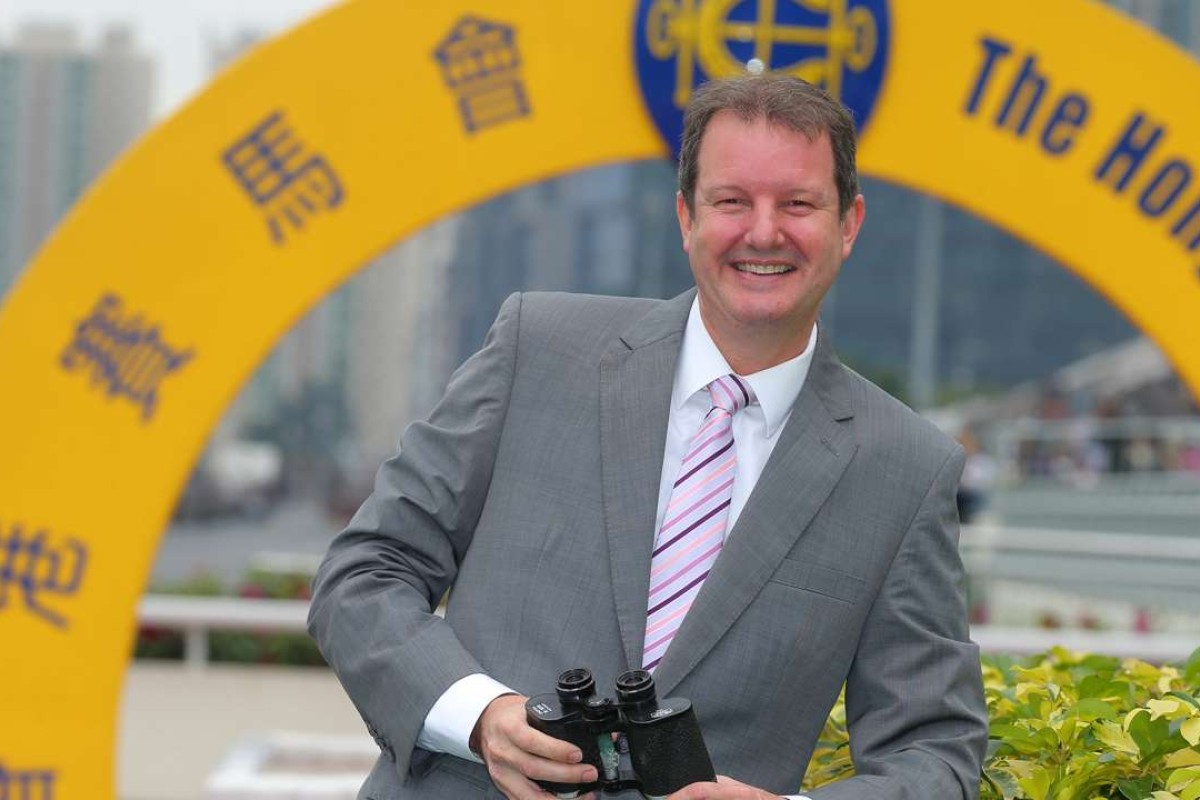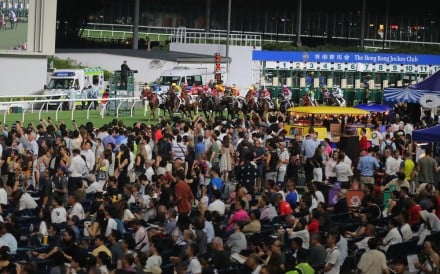Two of the world’s biggest meetings in the last two weeks have been a timely reminder of the importance of Hong Kong’s English broadcasting team, a group within the Hong Kong Jockey Club that is too often overlooked.
The Dubai World Cup card was a major disappointment for Hong Kong horses, while at least Sha Tin-based rider Zac Purton had some success on the first day of The Championships in Sydney.
But they were hugely significant meetings regardless because the men who brought the action to life, who injected the races with colour and commentary – Terry Spargo at Meydan and Darren Flindell at Randwick – were both Hong Kong veterans.
They were once part of the English broadcasting team, the crew that provides a link between Sha Tin and Happy Valley and much of the rest of the world. Within Hong Kong, though, they are maligned and marginalised, considered second-tier to the predominant Cantonese coverage.
The last 12 months has seen a major transition from the well-established team of callers Flindell and Brett Davis, presenter Clint Hutchison and paddock analyst Jenny Chapman, who had held the fort for the best part of a decade.
With Flindell becoming Sydney’s number one caller and Hutchison now a broadcaster in Melbourne, Davis and Chapman have been joined by British commentator John Blance and analyst Paul Lally, who has been with the Jockey Club for a number of years in different roles. The Jockey Club’s everywhere man Mark Richards has also come to the rescue when available, leading to some memorable exchanges, particularly with Chapman.
As expected, it has taken time for the group to gel, leading to some harsh feedback from a number of quarters. Earlier in the season, it reached unjustified levels of hysteria, but as the bit players have become more comfortable, the criticism has largely died down and they have become a unified team.
If anything, though, the problem was never the team the Jockey Club hired – the problems were more linked to the delay in hiring new talent as a number of deals failed to materialise – the most notorious being the failed attempt to hire former Sydney caller Mark Shean.
With a solid lineup in place now, though, and a good management team led by the likes of commingling development director George Irvine and telecast manager Doug Chalmers – who follows in the footsteps of Jason Tan and Nuno Fernandes as a well-liked and effective producer – the path forward looks promising.
With ambitious plans and the potential for new talent to be hired, don’t be surprised to see the English language product flourish as the Jockey Club chases more simulcast dollars and greater airtime abroad.
It is important, too, because history says that Hong Kong is a place that nurtures and develops talented broadcasters on the way up.
Consider the last five race callers to have departed Hong Kong – Flindell, David Raphael, Richard Hoiles, Spargo and Robert Geller.
Take Raphael out of the equation – still involved in racing but more in bloodstock – and you have arguably the finest active commentators in Australia, the United Kingdom, the United Arab Emirates and Canada. All are graduates of the Hong Kong system.
In Australia, racing broadcasters tend to be classified based on where they emerged from, so much so that there are different styles and different groups within the fairly small community.
Arguably the most prolific is the so-called “Alan Thomas school” – those that were mentored by the veteran Brisbane announcer who retired at the end of 2015. Some of the best young talent in the country – Josh Fleming, Mitch Manners, Luke Marlow – all have a very similar style to the man they call AT.
If that’s the case, maybe it is fair to say that there is a “Hong Kong school” of broadcasting, with Flindell, Raphael, Hoiles, Spargo and Geller, and perhaps stretching back to “Aussie Jim”, Jim McGrath.
Sure, they all had experience before moving to Hong Kong, contrasting styles and different mannerisms, but Hong Kong proved a launching pad for them. It enhanced their credibility and put them at the forefront of world racing.
So who will be the next graduates of the “Hong Kong school” of race broadcasting?
Davis has already earned his spot, and given his emergence as one of the world’s premier callers in the last 12 months, he could justifiably get a job anywhere on the planet at the moment.
Brett Davis calls the 2015 Hong Kong Cup, won by A Shin Hikari
Blance is on his way to joining the group, as he comes to grips with the stark distinctions between a three-runner chase over four miles at Sedgefield and a 12-runner 1,000m scamper at Happy Valley. He has come ahead in leaps and bounds since his arrival and he is quickly earning his stripes.
Perhaps it will be Edward Sadler, a blueblood in racing terms who has been more involved behind the scenes since his October arrival. If he is afforded opportunities by the Jockey Club, he is sure to make his mark as a broadcaster in the years ahead.
Or perhaps it will be someone yet to arrive in Hong Kong, a young announcer on the way up who will rise from obscurity to one of the most lucrative positions on the world stage.
Maybe at some point, the Jockey Club will recognise the extraordinary role it has played in developing some of the world’s best English broadcasters, even if it has not been a concerted effort by those in charge.
One idea floated around in recent days has been that, during a Hong Kong International Races week in the next year or two, perhaps the “Hong Kong school” could be brought together. Give them each a race to call during the Longines International Jockeys Championship at Happy Valley.
Terry Spargo calls the 2016 Dubai World Cup, won by California Chrome
Of course, not all left on the best of terms, so it would take some effort to bring them all back to Hong Kong, but there is no doubt they deserve some sort of recognition.
They are the group that took Hong Kong racing to the world, and their legacy should not be underestimated, nor should it ever be forgotten.





















